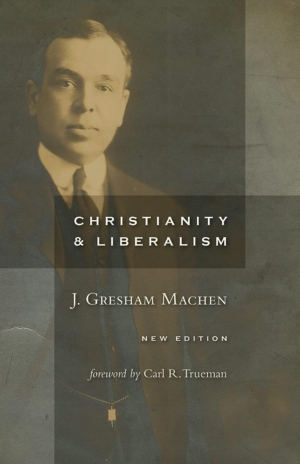Did school officials really suspend a Sanford, NC high school student and then file criminal charges against her because she took her dad’s lunch bag (which contained a small paring knife) to school? School officials say that had she turned herself in . . . Continue reading →
2010 Archive
Some Of The Differences Between Baptists And Reformed Theology On The New Covenant
Introduction In my response to Tom Schreiner’s critique of the Reformed confession of the Sabbath I wrote, “Underlying Schreiner’s approach to both the Baptism and Sabbath questions is a very large but often unstated a priori conviction about the nature of the new . . . Continue reading →
Confessional Presbyterian Volume 6 Available Now
The Confessional Presbyterian is six years old this year. Volume 6 is as outstanding and useful as the previous 5 volumes. You may subscribe before Jan 1, 2011 for $18.00 (($25 Institutional/Foreign). The USA rate will rise to the normal retail price . . . Continue reading →
All the Children Are Not Above Average
In Lake Wobegon all the children are above average. Outside of Lake Wobegon, however, it isn’t so. Therein lies the problem. Of course Garrison Keillor is being funny. In the nature of things, all the children cannot be above average. A recent . . . Continue reading →
John Samson is Reading Always Reformed
He likes the passage from R. C.’s chapter (p. 190) part of which says, [Luther] wondered, why is it that people are still spending their money on indulgences and on what [he] called the Pope’s second-hand junk? He said, the Pope is . . . Continue reading →
Reformation Fatigue?
Darryl Hart writes, Several years have passed since Mark Noll and Carolyn Nystrom co-authored, Is the Reformation Over? An Assessment of Contemporary Roman Catholicism (2005) but their recognition of Rome’s growing appeal to evangelical Protestants is no less true today than it . . . Continue reading →
Lane is Reading Always Reformed
Lane writes: “In the time of Machen, and even afterward, Reformed folk generally approved of Machen’s fight against liberalism, although even there they were hesitant to adopt the same level of combativeness that Machen had.” Read more»
Is it Wrong to Be Right? (Updated)
When we moved to the UK in the early 90s one of the several aspects of culture shock that we experienced was the plainness and forthrightness with which people spoke. I don’t know from experience that what we experienced was universal throughout . . . Continue reading →
Two Easy Ways to Help Office Hours
There are two easy ways for you to help Office Hours this week: —First, if you have benefitted from Office Hours go to iTunes and write a short review. This will let others know about the program. —Second, go to the Office . . . Continue reading →
The Death of Santa
Originally published on the HB 22 Dec 2008. As a young boy I certainly believed in Santa. We made the annual cookie oblation and went to bed under the conditional covenant that he would not come if we did not sleep (or . . . Continue reading →
Reach the 112th Congress with the Reformed Faith
Christ Reformed Church in DC has a unique opportunity. They’re planning a special outreach to incoming members of congress and their staffers. You can help. Pastor Brian Lee explains here.
Updated Resource Page: For Students Considering Seminary
In my never-ending quest to serve our “one-click” world I’ve compiled a great lot of resources (video, audio, and text) into a resource page (there’s a list of them on the left side of the home page of the HB) for students . . . Continue reading →
Office Hours: Machen in His Family Context
The latest episode of Office Hours is out via iTunes. In this episode, Dr Katherine VanDrunen, talks about her research into Machen’s family (the Greshams and the Machens) and how it contributed to his becoming a “Mr Valiant for Truth.” The interview tackled . . . Continue reading →
Christianity and Liberalism Revisited: Video Preview
Good News from a Surprising Source?
One might not have expected this Department of Justice to be advocating on behalf of religious liberty and one might not look at this case as good news but arguably one might be wrong.
Check Out the New WSC Website and Valiant for Truth
The Westminster Seminary California website has undergone some body work and while they were painting the body they added a little power to the engine. Beginning today, WSC has a faculty blog, “Valiant for Truth.” Subscribe here. The first post is by Bob . . . Continue reading →
Is “Covenant Membership” A Synonym for “Righteousness”?
That’s what N. T. Wright proposes. Remarkably, a number of evangelical and Reformed folk seem ready to accept Wright’s re-definition of justification or, in some cases, to downplay the consequences of Wright’s re-definition. Wright says: “‘Justification’ in the first century was not . . . Continue reading →
Zac is Reading Always Reformed
He like R. C. Sproul’s story about Joseph’s pants.
Austin is Reading Always Reformed
Austin writes: “I didn’t know what to expect, but I have to say I love this collection of essays. Diverse, stimulating, very readable, reflective, scholarly, page-turning, and a work that I see as advancing Reformed reflection, not regurgitating.” Read More» UPDATE He’s . . . Continue reading →
2011 Westminster Seminary Conference: Christianity and Liberalism Revisited
Few figures have been as important to Reformed Christianity in North America as J. Gresham Machen. He faced many of the same challenges that we face now and he did so in a way that advanced the faith, he did so winsomely, . . . Continue reading →


